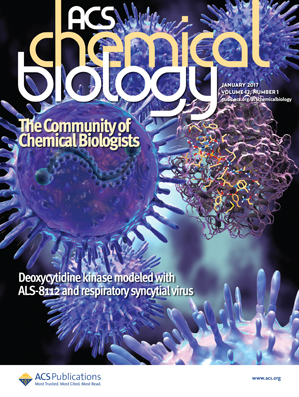现在打电话还为时过早:我们对网络审查的有效性了解多少
IF 3.5
2区 生物学
Q2 BIOCHEMISTRY & MOLECULAR BIOLOGY
引用次数: 0
摘要
毫无疑问:网络审查现在是招聘人员的日常工作(Berkelaar和Buzzanell,2015;Hartwell和Campion,2020)。因此,我们非常同意Wilcox等人的观点。(2022)认为,解决网络审查实践与研究之间的巨大差距很重要,尤其是在其有效性方面。他们的文章敲响了警钟,这个问题中的大多数问题仍然没有答案。我们看到了他们明显怀疑的观点,并同意网络审查的有效性尚未得到证实。尽管如此,我们认为,在网络审查被认为具有“可疑的有效性”(Wilcox et al.,2022,p.X)、导致“生产力下降”(p.X)和“限制言论自由”(p.X)之前,本章需要仔细研究。尽管有充分的理由保持谨慎,但我们质疑网络审查是否是“由组织内的个人招聘代理进行的一种非反思性活动,而这些代理要么忽视,要么鼓励”(第十页)。许多研究人员在早期就警告过网络审查的风险(例如,Brown&Vaughn,2011;Caers&Castelyns,2011;Davison等人,2011);求职者报告称,如果使用网络审查,他们打算撤回申请(Schneider等人,2015;Suen,2018)并起诉组织(Stoughton等人,2015)。招聘人员也报告了对这种做法的模糊性(例如,Hoek等人,2016;McDonald等人,2021;Pike等人,2018)。我们看到的不是利益相关者“不加批判”地接受网络审查(Wilcox等人,2022,第X页),而是一场生动的辩论。社交媒体(SM)平台可能是一种现代的、容易获得的、不那么伪造的、对申请人特征的第一印象的经济来源,取代了传统的简历(Davison et al.,2011;Landers&Schmidt,2016)——如果有证据证明其有效性的话。当Davison等人(2011)、Roth等人(2016)以及Landers和Schmidt(2016)对网络审查的有效性得出了喜忧参半的结论时,争论就开始了。接下来,我们将阐明之前关于网络审查有效性的调查结果,加深仍然未知的问题,并呼吁采取进一步行动。本文章由计算机程序翻译,如有差异,请以英文原文为准。
Too early to call: What we do (not) know about the validity of cybervetting
There is no doubt: Cybervetting is now recruiters’ everyday routine (Berkelaar & Buzzanell, 2015; Hartwell & Campion, 2020). Thus, we could not agree more with Wilcox et al. (2022) that it is important to address the considerable gap between cybervetting practice and research, especially concerning its validity. Their article is a wake-up call that most questions in this issue are still unanswered. We see the point of their distinct skepticism and agree that the validity of cybervetting is unproven. Nonetheless, we argue that this chapter needs a closer look before cybervetting is said to have “dubious effectiveness” (Wilcox et al., 2022, p. X), leads to “dampened productivity” (p. X), and “limits freedom of expression” (p. X). Although there is good reason to be cautious, we put into question whether cybervetting is an “unreflective activity undertaken by individual hiring agents within organizations that alternately ignore or encourage it” (p. X). Many researchers have warned about the risks of cybervetting early on (e.g., Brown & Vaughn, 2011; Caers & Castelyns, 2011; Davison et al., 2011); job candidates report intentions to withdraw applications (Schneider et al., 2015; Suen, 2018) and sue organizations (Stoughton et al., 2015) if cybervetting is used. Recruiters also report ambiguity about this practice (e.g., Hoek et al., 2016; McDonald et al., 2021; Pike et al., 2018). Rather than stakeholders “uncritically” (Wilcox et al., 2022, p. X) accepting cybervetting, we see a vivid debate. Social media (SM) platforms might be a modern, easily available, less faked, and economic source for first impressions of applicants’ traits, replacing traditional resumés (Davison et al., 2011; Landers & Schmidt, 2016)—if there is evidence for its validity. The debate started when Davison et al. (2011), Roth et al. (2016), and Landers and Schmidt (2016) provided mixed conclusions about cybervetting validity. Following, we shine a light on previous findings regarding cybervetting’s validity, deepen the still unknowns, and call for further action.
求助全文
通过发布文献求助,成功后即可免费获取论文全文。
去求助
来源期刊

ACS Chemical Biology
生物-生化与分子生物学
CiteScore
7.50
自引率
5.00%
发文量
353
审稿时长
3.3 months
期刊介绍:
ACS Chemical Biology provides an international forum for the rapid communication of research that broadly embraces the interface between chemistry and biology.
The journal also serves as a forum to facilitate the communication between biologists and chemists that will translate into new research opportunities and discoveries. Results will be published in which molecular reasoning has been used to probe questions through in vitro investigations, cell biological methods, or organismic studies.
We welcome mechanistic studies on proteins, nucleic acids, sugars, lipids, and nonbiological polymers. The journal serves a large scientific community, exploring cellular function from both chemical and biological perspectives. It is understood that submitted work is based upon original results and has not been published previously.
 求助内容:
求助内容: 应助结果提醒方式:
应助结果提醒方式:


